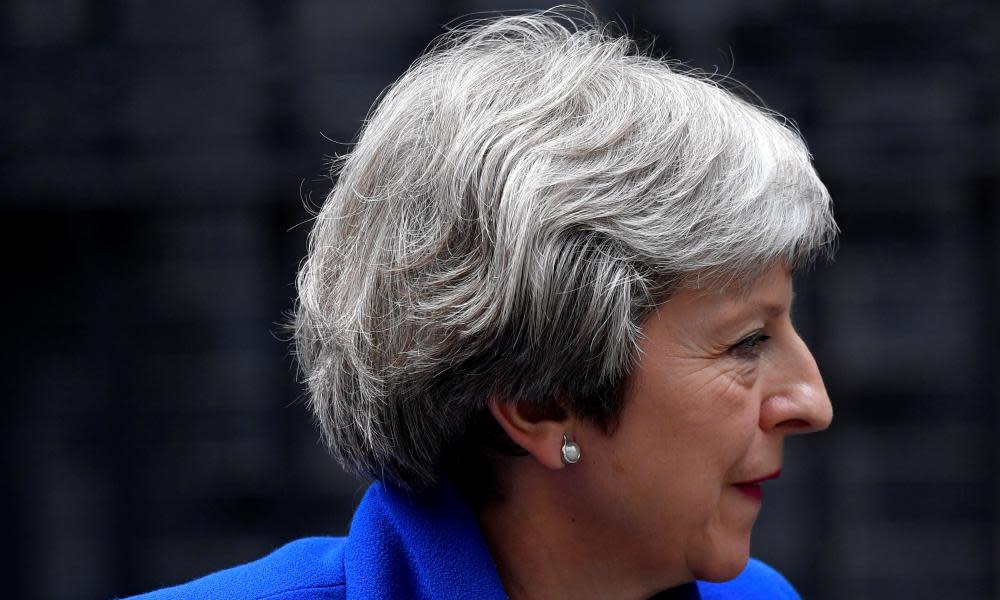The art of the U-turn: May scrambles to avoid Brexit bill defeat

Another day, another Commons confrontation flunked. Theresa May has turned the last-minute swerve into an art form – and by persuading Dominic Grieve, if not all of his band of followers, to swing behind the government on Wednesday, she avoided yet another much-anticipated showdown.
As so often in recent days, both sides of the Brexit civil war now raging in the Tory party declared victory.
Brexiters derided Grieve’s willingness to settle for a reassuring statement from the government that they regard as “purest verbiage”, and celebrated the fact the government’s flagship Brexit bill has now passed.
“We get the bill. They get words. They ran away because they know they don’t have the numbers,” said one senior leaver.
Yet the desperate contortions of the government – including the cruel spectacle of one seriously ill Labour MP being wheeled through the voting lobby in a wheelchair because of the intransigence of Tory whips – told a different story.
Whatever the bullish Brexiters say, May and her lieutenants in the whips’ office clearly believed they were staring at the prospect of defeat.
EU members (plus Turkey, Andorra, Monaco and San Marino) trade without customs duties, taxes or tariffs between themselves, and charge the same tariffs on imports from outside the EU. Customs union members cannot negotiate their own trade deals outside the EU, which is why leaving it – while hopefully negotiating a bespoke arrangement – has been one of the government’s Brexit goals. See our full Brexit phrasebook.
And the narrow margin of victory – a majority of just 16 – kept the flame of resistance alive in the hearts of remain-minded MPs.
They hope once the debate moves out of this procedural cul-de-sac, and onto substantive issues, Tory rebels will be more likely to hold their nerve.
The government has promised to bring customs and trade bills back to the Commons before the July recess, and several crucial amendments, including on keeping open the option of a customs union, have a string of Conservative signatories.
And while the Brexiters may have been crowing, Wednesday’s victory was not the hoped for decisive trouncing of the rebels.
They believe May is too beholden to the rebels; and too inclined to use the prospect of parliamentary defeat as a justification for sliding towards an ever-softer Brexit.
The chief whip, Julian Smith, attends the Brexit subcommittee, in which the prime minister’s deadlocked cabinet is trying to thrash out the government’s next move – so that when called upon, he can opine about about what will and won’t make it through this bitterly divided hung parliament.
No decisive answer to that question emerged from Wednesday’s shenanigans.
As for the prime minister herself, her heavily dented authority has taken yet another dink. She avoided defeat – but only after an undignified last-minute scramble.
Number 10’s effort to get on the front foot at the weekend by announcing a spending splurge on the NHS has been largely overtaken by the row about which taxes would rise to pay for it.
And many of the big Brexit questions – not least what customs arrangements the UK hopes to have with the EU27 – still remain unsettled, pending a (second) cabinet Chequers awayday next month.
With the withdrawal bill now on the statute books, there are dark mutterings that Brexiters could chuck May overboard; but in this fractious parliament, there could be many more grinding days like this to come before the job of Brexit is complete. Even the most gung-ho leavers may be wise to bide their time.

 Yahoo News
Yahoo News 
